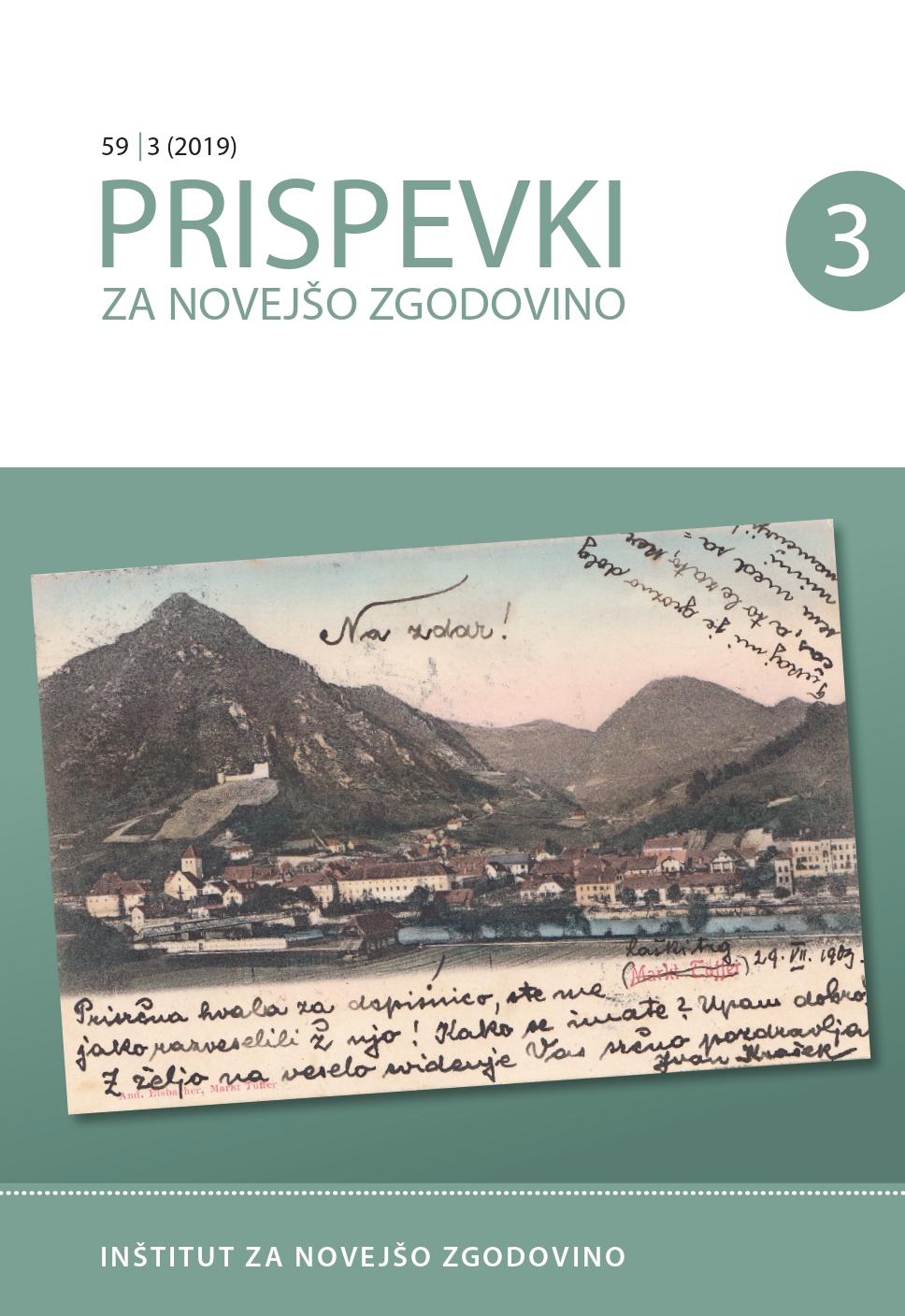Slovenci, Jugoslavija in začetek vojne
Slovenians, Yugoslavia, and the Onset of War
Author(s): Jurij PerovšekSubject(s): Christian Theology and Religion, Military history, Political history, Security and defense, Politics and religion, WW II and following years (1940 - 1949), Peace and Conflict Studies
Published by: Inštitut za novejšo zgodovino
Keywords: Banate of Slovenia; Slovenian national programmes; Dr Anton Korošec; Lojze Ude; Bogo Grafenauer; Edvard Kardelj Sperans; Dušan Kermauner; political Catholicism; Christ the King Congress; defence;
Summary/Abstract: In the autumn of 1939, after the establishment of the Banate of Croatia on 26 August 1939, the Catholic camp, which had absolute power in the Drava Banate (Slovenia in the First Yugoslavia), initiated the preparations for the establishment of a separate Banate of Slovenia. In 1939, the opposition – the People’s Front movement – also focused on the question of the state-legal emancipation in the Kingdom of Yugoslavia. The National Democrats, Christian Socialists, and Communists drew up three very specific, original, and radical autonomist-federalist national programmes. Apart from the national issue, ideologicalpolitical orientations were also emphasised in Slovenia. The Catholic camp intensified its ideological struggle not only against liberalism but also against socialism and communism in particular. Simultaneously, a split took place in this movement, as the Christian Socialists severed all ties with the Catholic politics. The ideological standpoint of most of the Catholic camp – the demand for urgent Catholic restoration – was expressed in 1939 at the VI International Christ the King Congress between 25 and 30 July 1939 in Ljubljana. The national defence movement – which encouraged the association of people, societies, and organisations, regardless of their political adherence, to ensure the defence from the external danger of the fascist states and the joint struggle against Hitlerism – was increasingly active. In 1939, the well-known Spominski zbornik Slovenije, a memorial anthology of texts, was published; the University of Ljubljana celebrated its 20th anniversary; and, on this occasion, Anton Korošec received the honorary Doctor of Law title. In 1939, he also became an honorary citizen of Ljubljana. After the onset of World War II on 1 September 1939, Slovenians were preoccupied with the concern (for many already the conviction) that Yugoslavia would not be able to avoid the conflict. They also focused on the expectations of democratic changes in the state, ideological and political disputes, and the determination to defend Yugoslavia. When over a year and a half later, the new global conflict engulfed the entire Slovenian nation, affecting its ideological and socio-political characteristics, the toughest historical ordeal for Slovenians began, during which they also had to come to terms with themselves.
Journal: Prispevki za novejšo zgodovino (before 1960: Prispevki za zgodovino delavskega gibanja)
- Issue Year: 59/2019
- Issue No: 3
- Page Range: 74-97
- Page Count: 24
- Language: Slovenian

